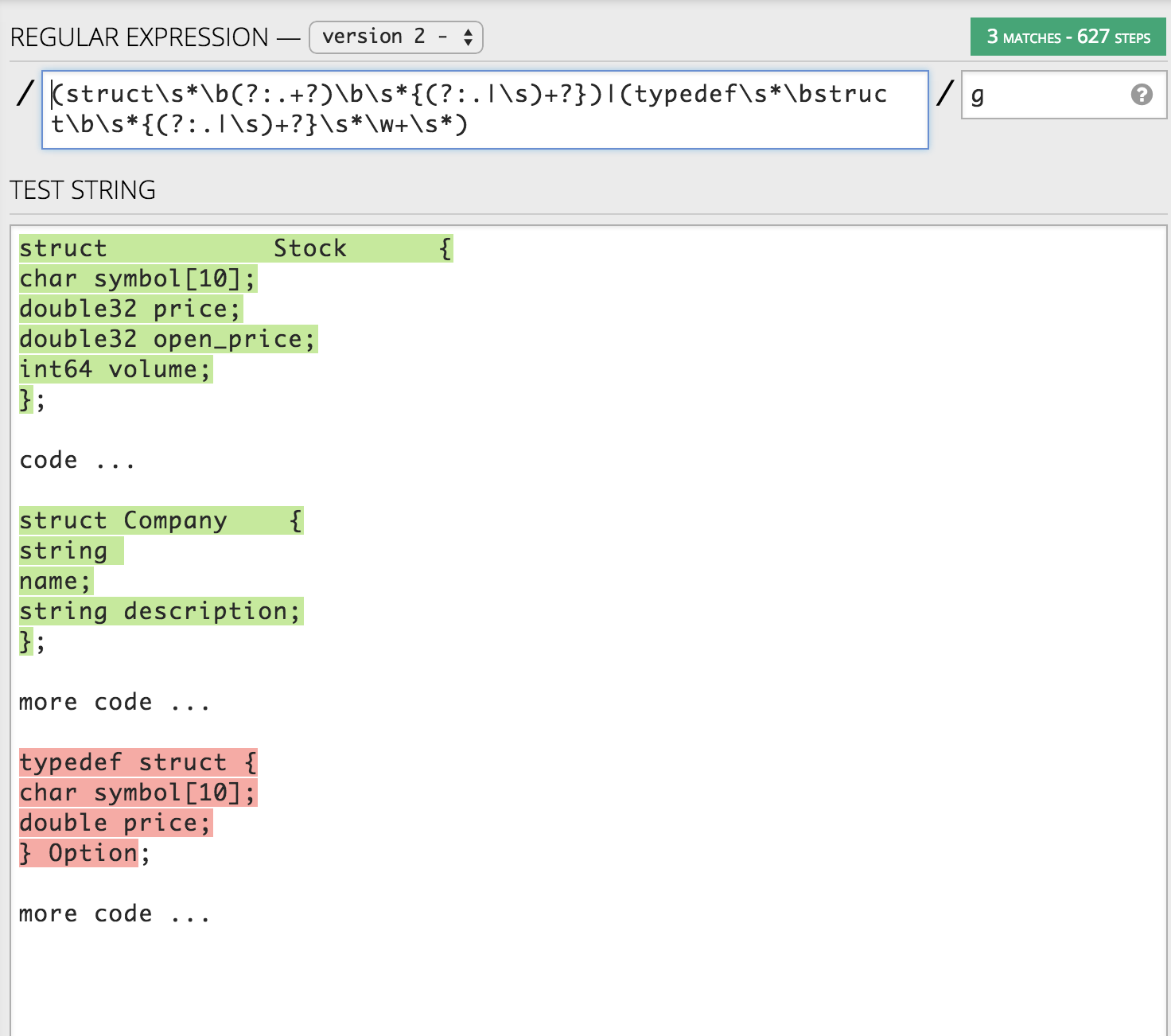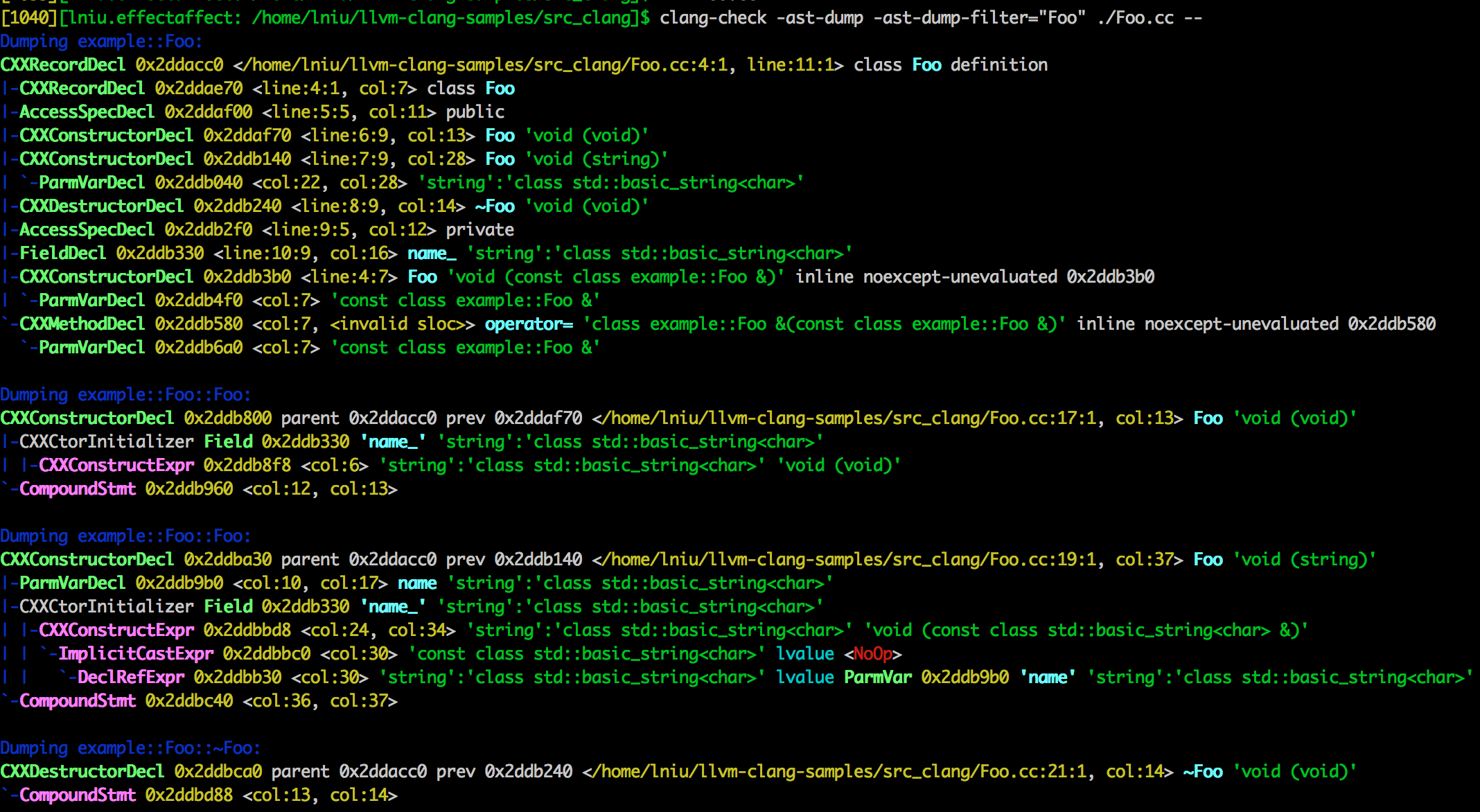Generate Protobuf Message definitions using Clang libraries(TODO)
Introduction
Recently we are doing a major refactoring of the basic infrastructure. One goal is to use Google Protobuf during messing passing, which requires adding protobuf definition for all of our fundamental data format. Here is an example. Suppose we have a struct:
typedef double double32;
typedef long int64;
struct Stock {
char symbol[10];
double32 price;
double32 open_price;
int64 volume;
};And what we want is:
message Stock {
required string symbol = 1;
required double price = 2;
required double open_price = 3;
required long volume = 4;
};This brings up a very interesting question: is there a way to auto generate these protobuf definitions?
Regular Expression
The first method came to my mind is regular expression. Suppose in the code there are two kinds of syntax to define a struct.
struct Stock {} or typedef struct {} Stock, we could use regex to extract the struct definition and then do a simple replacement. demo link

However, using regex is just like doing a part what compiler is doing and it’s not extensible. If we have recursive typedef typedef xxx int; typedef xxx yyy; or we want to use constumize definitions in protobuf message Message Stock {required message Company;}, it will be more difficult to analyze the code.
Reflection
Another way to go is reflection. Reflection is the ability to inspect classes and dynamically call classes and functions. it could help with questions like “what are all the fields class Foo has”, “is their a method doFoo in class Foo” or “what is the root class of class Foo”. Here is an toy example using java:
package com.example;
import java.lang.reflect.Field;
public class Main {
private class Foo {
public int a;
public double b;
public String c;
}
public static void printAllFields(Class targetClass) {
Field[] fields = targetClass.getFields();
for(Field field : fields) {
System.out.printf("%s, %s\n", field.getType().getSimpleName(), field.getName());
}
}
public static void main(String[] args) {
printAllFields(Foo.class);
}
}
// output:
// int, a
// double, b
// String, cThe whole thing could be suprisingly simple in Java, but unfortunately, I am using C++. Unlike java or python, C++ doesn’t provide native support for reflection(why? short answer: it requires big change and is not top priority. checkout this ) There are ways to use reflection. One of them is boost::type_traits and it requires a big refactor of code using this feature. That’s doable but personally I think that’s even difficulty than the regex solution. You have to learn one additional libraries and also have to be very careful when it comes to dependencies between classes. ## Clang AST
Clang AST provide compiler level APIs to explore C++ classes and functions. Finally I choose this solution mainly because it is similar with Java reflection solution: pure analysis, not a single line change required to the codebase. However, it is much much more difficult than I expected, but I learnt a lot in this journey.
A simple taste
The idea is pretty simple. Using clang AST to analyze a class, aggregate all fields and print out the class definition in protobuf message format. The first thing is to get familiar with clang AST. clang provide a tool called clang-check which could be used to print out the AST tree. This tool is helpful for both learning and debugging. We could try to use clang-check to dump the AST of a simple class.
#include <string>
using std::string;
namespace example {
class Foo {
public:
Foo();
explicit Foo(string);
~Foo();
private:
string name_;
};
} // namespace example
using namespace std;
using namespace example;
Foo::Foo() {}
Foo::Foo(string name): name_(name) {}
Foo::~Foo() {}The output is:

From the result, the only thing needs to take care of is the CXXRecordDecl cause all the fields are under this declaration. Obversely we need to find out the API to do that.
### Output all fields of one class
code example
### recursive type def